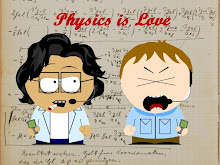An earlier piece of writing, reflecting on definitions of "magic"
Quite a silly piece of writing, yet, nonetheless, one of the rare instances in which I have some literary flair in my writing
I am Melquíades, the traveler, the teller, the prophet, the gypsy, the wise man, the sage, the bard, the loon. I am the one people come to when they wish to hear stories or discuss the world outside of what they know. However, most see me as merely an entertainer, a jukebox. Few take me seriously. They believe that I am merely a charlatan like Magnus Eisengrim, yet I am far from a man of illusions. Magus Eisengrim is a beautiful man—his well-toned body, sculpted face, enigmatic voice, elegant poise—a fact that even I cannot deny. His eyes enchant me as he hypnotizes me into a light slumber of sensuality; his hands grazing my skin in an erotic touch that burns a strange fire that consumes everything except for me and him.
He then closes his own eyes, allowing my empty ones to wander around that handsome face of his, filling my own hunger for such a saccharine sight until I realize that his lips brushed mine. In all my voyeurism and detachment, I have not noticed that his face was burning right in front of mine with the same yearning and hunger I was trying to satiate. My tongue, normally poisonous and sharp, was tamed instantly by his and a courtship of its own was performed by our mouths. Magic? I shall say so, yet it is not magic belonging to the illusionist. No. It was my own magic that brought this performer to grind his hips into mine.
People always believed in magic, yet they never knew what to expect. The nature of magic is so elusive, so mystical, that it has been missed by many. Magnus Eisengrim provides miracles and feats that are visible. He plays on the human dependency on sight and therefore earns his reputation through the awing of the masses. Yet his acts of magic are always illusions, empty tricks and performances that fuel the human desire to see miracles. The audience, therefore, believes that I am under his spell because they saw his powder and smoke flash at me—yet did they realize that it was I who directed Eisengrim’s “spell” towards me? Therein lies true magic—manipulation of the universe to manifest one’s desires. As the foolish genius Aleister Crowley states: “Magic(k) is the Science and Art of causing Change to occur in conformity with Will.” This explanation of magic is too simple and too open to accommodate the image of dark winds and crashing thunder, therefore leading the mundane to overlook the only valid principle in the universe: change.
What magic truly is, no one can explain for even definitions and magic change in the course of the universe. Even change itself changes as can be seen by taking that derivative of a polynomial equation and finding the slope of the equation at different points. Of course, some may say that there is a formula to change (after all, a derivative is a defined mathematical entity) and that indicates limits of change. We can therefore assume that the limits create laws that must be kept in order to maintain the mechanical order of the universe. That was classical physics. To state limits such as a formula for change (derivatives) is to imply an architectural structure of the universe and therefore the existence of a divine architect has entered the mind of humans.
Architects have planes, rules, and boundaries, clearly defining the difference between the bedroom and the kitchen (although some may argue using criticisms like Marxism on the nature of the servants sleeping in the kitchen to be ready for any of the tyrant’s outrageous requests) and with these boundaries, we are able to build according to these obligations. Yes, these boundaries and obligations exist… for the time being. The constant of change affects these boundaries as the kitchen may turn into a swimming pool or the house is demolished by an earthquake. Theism and the belief in an architect forget the constant of change, therefore they are unable to fully experience the power of liberated magic.
Of course, with such a general description of magic, it is inevitable that humans are driven to properly define magic and set up categories for the little subgroups. Little do they know that creating a definition for magic violates the only unchanging (yet still changing) principle: change (a paradox expressed through limited linguistics of logically fallible human beings). Such acts are similar to defining what is deconstruction or what is beings. Heidegger describes nicely (albeit densely and profoundly) what our attitude towards magic should most likely be if we wanted to be efficient: Dasein. Magic should be about experience over meaning and the figural over the discursive.
Few are called upon the path of true magic, yet even fewer are called upon discerning the meaning of magic. To paraphrase Karl Marx, let the philosophers deal with the abstractions and incur change upon the world yourself! It may be that there will be a magical revolution, but the masses provide little incentive for hope.
So let them think that Magnus Eisengrim is a true magician. Yet let them also see the smirk on my face as his hands travel down to my own hardening groin.
Wednesday, April 25, 2007
Subscribe to:
Post Comments (Atom)


No comments:
Post a Comment